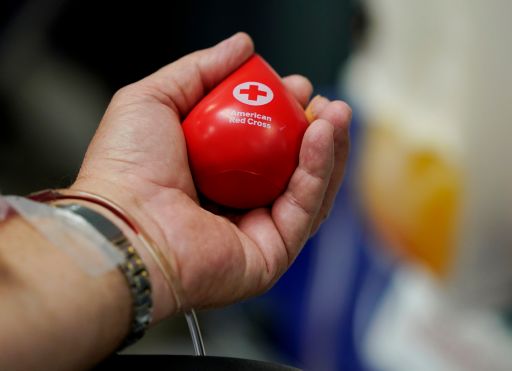 Vitalent
Vitalent In January of 2022, the American Red Cross declared the first ever blood crisis. The crisis stayed and the nation is still in a shortage of blood. As stated on the American Red Cross website, every two seconds someone in the country needs blood.
Jo Hart, MLT, director of the lab at Greene County Medical Center commented on the importance of blood from the eyes of an organization in Waynesburg, PA.
“If there is a major car accident and we can not get blood in, that life is not saved,” Hart said. “If they are bleeding out, we can not save them if we do not have that blood. We need that blood.”
To help combat this national blood shortage Waynesburg University has partnered with Vitalant to host a blood drive of their own. This blood drive will be held on Sept. 29. It will be on the third floor of the Stover Campus Center in the conference room from 10 a.m. to 3 p.m.
Samantha Steinmiller, a Registered Nurse at Waynesburg’s Student Health Services, is in charge of this year’s drive.
“It is a small blood drive being only one day, but it is something that will help out local hospitals and their need for blood,” Steinmiller said.
Interested students can sign up by either emailing healthservices@waynesburg.edu or by calling 724-852-3332. Students are suggested to make appointments but walk-ins will be welcome as long as the technicians are available.

“It is a small blood drive being only one day, but it is something that will help out local hospitals and their need for blood.”
Photo courtesy Vitalent
“If a student is interested, they need to sign up,” Steinmiller said. “There are some restrictions [which] they can find on the vitalant website. Depending on if they have given blood recently, if they are anemic, if there are certain medical conditions or medications people are taking they suggest against giving blood. They can find all of that on the Vitalant website if anyone has any concerns about giving blood.”
This is not the first time that Waynesburg University has held a blood drive. Before the COVID-19 pandemic the university hosted one that gained a lot of attraction and was highly attended.
“I think it is fantastic, especially since I am seeing people from our community who are signing up independently of contacting me,” Steinmiller said. “I can see people from our community who participate in blood drives to help out with the shortage.”
There are still open appointments available for students who want to donate, the goal is to have them all completely filled.
“It is essential for surgeries, cancer treatment, chronic illness, and traumatic injuries,” The American Red Cross stated on their website. “Whether a patient receives whole blood, red cells, platelets or plasma, this lifesaving care starts with one person making a generous donation.”

“It is essential for surgeries, cancer treatment, chronic illness, and traumatic injuries… Whether a patient receives whole blood, red cells, platelets, or plasma, this lifesaving care starts with one person making a generous donation.”
Photo courtesy American Red Cross
